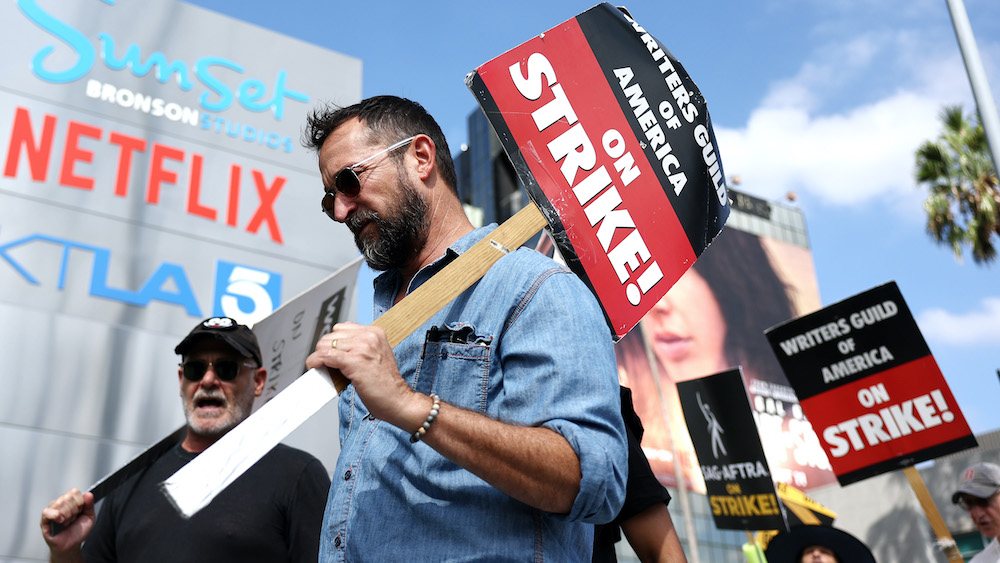UPDATED: The Writers Guild of America and Hollywood’s major studios moved significantly closer to ending the nearly five-month strike late Friday. A third day of marathon negotiations ended late Friday without a deal but with strong indications from both sides of the table that the sides are closing in on a tentative deal for a hard-fought three-year contract.
The sides will meet again on Saturday, underscoring the urgency surrounding the negotiations. It was not clear whether the executive foursome will join again in person.
The four senior executives — Disney’s Bob Iger, Warner Bros. Discovery’s David Zaslav, NBCUniversal’s Donna Langley and Netflix’s Ted Sarandos — who have helped guide the highly contested negotiations left the headquarters of the Alliance of Motion Picture and Television Producers’ headquarters in Sherman Oaks around 8:30 p.m. Source on both sides of the table indicated that movement was finally made in the final hours of Friday’s session, which began at 11 a.m. PT.
It’s understood that the executives held a briefing call Friday afternoon with some of their counterparts at other companies. Sources said that overall Friday’s meeting ended on a positive note, in contrast to the atmosphere after Thursday’s session that stretched to nearly 8 p.m.
Multiple sources reported the sides began to get down to brass tacks on longstanding sticky issues in the late afternoon. The contract bargaining process, the source said, is in the slog phase of working out legal language that both sides can agree on. WGA sources reported there are still grave concerns about the potential for loopholes and outs to be woven into contract language in deal terms that are said to be groundbreaking in their construction.
It’s understood that the “success-based residual” that has been so crucial to the contract demands of WGA and SAG-AFTRA will be calcuated at least in part by whether a given title is watched by a pre-determined percentage of a given streamer or platform’s subscriber base. That would represent a new compensation metric for the WGA’s Minimum Basic Agreement contract — one built for an era when TV profits will be derived from direct-to-consumer subscription revenue rather than advertising sales and affiliate fees paid by middleman cable and satellite distributors.
The WGA has been on strike since May 2. Actors guild SAG-AFTRA joined the writers union on the picket lines July 14 following its own inability to reach a new contract with the studios.
Key points that have prevented the WGA and AMPTP from inking an updated deal include disagreements on generative AI in the creative process, staff levels and minimum weeks of employment for episodic TV writers, streaming residuals and the long-sought “second step” guarantee for screenwriters to compensate for the pressure to deliver free outlines, drafts and polishes.
The WGA and AMPTP resumed negotiations on Sept. 20 for the first time in nearly a month. On Thursday evening, multiple sources said some last-minute issues arose regarding what the studio side viewed as new points brought to the table by the WGA. Talks continued until about 7:30 p.m., with plans made to resume Friday morning.


